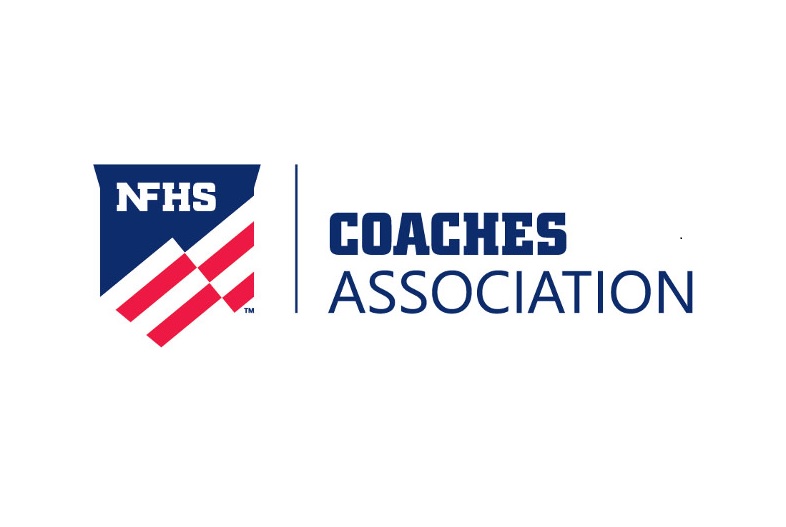
CAP Begins 2014-15 on Record Pace
August 22, 2014
By Geoff Kimmerly
Second Half editor
Gretchen Mohney has come to recognize coaches who think they already know it all.
Then she begins a Coaches Advancement Program lesson by describing an orange banging around inside a fishbowl – a metaphor to explain the brain inside an athlete’s skull when he or she suffers a concussion.
Her most powerful lessons have moved pupils to tears. And it’s always gratifying to witness the “Aha” moments that make the CAP educational experience so powerful.
“My favorite is when they admit that they’ve done something wrong, and they want to know how to do something better,” said Mohney, a highly-respected trainer and strength and conditioning coach who also serves as an instructor for the athletic training program at Western Michigan University. “It’s a pretty awesome moment when they realize there’s more to learn.”
More current and aspiring coaches than ever before are taking advantage of that opportunity as the 2014-15 school year kicks off.
Since this training year began July 25 at Battle Creek Lakeview, 273 current or aspiring coaches have completed CAP sessions – nearly twice as many coaches as this point a year ago and with the last session of August planned for Saturday at New Buffalo. That makes this the busiest start in CAP history, according to MHSAA assistant director Kathy Vruggink Westdorp, who joined the MHSAA staff in 2004, developed CAP for the 2004-05 school year and continues to oversee the program.
This first month’s total attendance also represents 33 percent of the 818 total CAP units completed at high schools and the MHSAA office during all of 2013-14.
“I think the big thing continues to be word of mouth that this is a quality program,” said Hamilton athletic director Jerry Haggerty, a CAP instructor for nine years. “It’s good for all coaches of all experience levels.”
Setting a standard
Since the program’s inception, nearly 6,300 coaches have completed at least the first-level unit. More than 1,000 have advanced through CAP 4.
The CAP program is broken into six levels, each addressing a set of topics:
- CAP 1: Coaches Make the Difference, The Coach as Teacher, Sports Medicine and First Aid.
- CAP 2: Effective Communication, Legal Responsibilities, Psychology of Coaching.
- CAP 3: Additional Coaching Responsibilities, Effectively Working with Parents, The Coach as Performer.
- CAP 4: Understanding Athletic Development, Strength and Conditioning, Preparing for Success.
- CAP 5: Healthy Living, Teaching Emotional Toughness, Resolving Conflicts in Athletics.
- CAP 6: Current Issues and Topics in Educational Athletics.
“Individuals who go through this have a better understanding of their philosophy, their school’s philosophy, their role and responsibility as well as the meaning behind MHSAA rules,” said Westdorp, a former principal, athletic director, teacher and coach in the Grand Rapids area who was named 2013 Coach Educator of the Year by the National Federation of State High School Associations (NFHS) for her work with the program.
She trains and evaluates all presenters and instructors, including those who last school year administered 1,238 CAP sessions at seven universities and colleges across both peninsulas.
The non-college CAP sessions are taught by 20 instructors who pride themselves on being available anywhere there’s interest. CAP has been presented at 10 Lower Peninsula schools over the last month, with Upper Peninsula sessions planned for this fall. August 9 was particularly busy – units were taught at Jonesville, Pontiac Notre Dame Prep and Riverview Gabriel Richard – but Westdorp sees the possibility of presenting at up to five sites on the same day.
Flexibility also is an option; a group of mostly non-school coaches took CAP 2 last week in Baldwin, and were able to complete the course over two days instead of one so they could do so without interrupting their fulltime jobs. For coaches working in schools, CAP units can qualify as continuing education credits with the State Department of Education.
Colleges and universities in Michigan are licensed to present up to five levels through their undergraduate or graduate studies, and the list of those who completed courses the last few years is filled with recognizable names of former high achievers on MHSAA courts and fields. Southwestern Michigan College in Dowagiac will offer courses for the first time this fall.
Certification in the program occurs after completion of CAP 1 and 2, and then after each subsequent unit, with those completing CAP 6 earning Masters Elite Certification.
The topics of CAP sessions “bleed” into each other, Mohney said, and come with plenty of first-person examples to make them relevant to coaches who then realize they aren’t alone facing issues most encounter.
“I talk to them because I’ve been there. … (I say,) ‘Now, let’s talk real.’ I place them in a real situation,” Mohney said. “’The biggest thing is you guys don’t have to know everything. You just need to coach, be aware of this, this and that. And these are some ideas to go about your plan so you can decrease your stress.’
“Any time a coach hears that, it’s a beautiful thing. Because I’m not sure what coach in high school is in coaching for the money.”
Raising the bar
Certainly, some of this month’s heightened CAP participation can be attributed to an MHSAA Representative Council action in March. Beginning Aug. 1, 2016, varsity head coaches hired for the first time at an MHSAA member school must have completed CAP 1 or CAP 2. Westdorp said some who wish to become head coaches in that near future are getting a jump by completing CAP courses now.
But that’s only a slice of the success story.
Haggerty has directed Hamilton’s athletic department for 15 years and said all of his coaches have taken either CAP 1 or 2. Many coaches take the courses on their own; others are required to do so by their athletic directors.
The Capital Area Activities Conference will offer CAP 1 three times this school year, with 100-150 coaches from their 20 member schools expected for each session. Others leagues and conferences are designing similar arrangements.
Michael Roy coached boys basketball at Lawton and girls hoops at Vicksburg and was certified under the predecessor to CAP – the MHSAA’s former Program for Athletic Coaches’ Education (PACE). He’s beginning his 13th year as Vicksburg’s athletic director, and after hosting several CAP classes over the years decided to begin the program himself this month.
“The need for knowledgeable and experienced coaches is greater than ever before. I thought if I was going to make it mandatory for my coaches to become CAP certified, that I needed to get CAP certified and lead by example,” Roy said. “The heart of any athletic team or program is its coaching staff. CAP is the surest way for coaches to access everything they need to know how to be a good coach. They learn the art of effective coaching through one of the best-designed coaches education programs in the country. CAP is second to none.”
Haggerty has spoken with athletic directors who have completed the program and then recognize when their coaches employ strategies learned at CAP sessions. An increasing pool of coaching candidates are heading into interviews with CAP certification in hand, and Westdorp has seen coaches bringing their CAP binders to practices to have those lessons available for quick reference. She’s also watched many CAP graduates using their skills at the highest level – the MHSAA Finals.
A comment by Duke men’s basketball coach Mike Krzyzewski sits at the front of those CAP binders: “A common mistake among those who work in sport is spending a disproportional amount of time on x’s and o’s as compared to time spent learning about people.”
Haggerty starts each session telling his pupils, “I do this for two reasons; one because I think it’s important to look at the non-x and o coaching realms; and two, because this is great fun for me.’”
And those coaches who come into CAP thinking they know enough? Mohney said most finish the first unit looking forward to beginning the next.
“CAP has a lot to do with understanding what you’re about, understanding your role and responsibility in athletics and your leadership role,” Westdorp said. “When I start programs, I talk about my work roles in life, and then (I tell coaches), ‘I want to tell you where I felt I was more influential, and that was as a coach.
“’And don’t ever forget it..’”
Click for more on the Coaches Advancement Program.
PHOTOS: These coaches, counter-clockwise from top left, all have completed at least one CAP unit: Bay City Western softball coach Rick Garlinghouse, St. Ignace girls basketball coach Dorene Ingalls, Ypsilanti Community boys basketball coach Steve Brooks, Beal City baseball coach Brad Antcliff and Mattawan softball coach Alicia Smith.

3 Michigan Leaders Earn NFHS National 'Coach of the Year' Honors
By
Geoff Kimmerly
MHSAA.com senior editor
January 18, 2022
Three Michigan high school varsity coaches have been recognized among 23 National Coaches of the Year for 2020-21 by the National Federation of State High School Associations (NHFS) Coaches Association.
Ann Arbor Pioneer girls swimming & diving coach Stefanie Kerska, Bronson volleyball coach Jean LaClair and DeWitt football coach Rob Zimmerman were selected by a committee including representatives from all eight NFHS sections – Michigan is part of Section 4 with Illinois, Indiana, Iowa and Wisconsin.
The following brief bios includes an excerpt from each honoree’s coaching philosophy, which nominees were asked to submit after being identified as candidates for the awards.
 Stefanie Kerska took over both the Ann Arbor Pioneer girls and boys swimming & diving programs during the 2014-15 school year, and she has led the girls to the last two Lower Peninsula Division 1 Finals championships; her 2020 team doubled up the runner-up’s score with 368 points, and this fall’s team climbed even higher with 405.5 points at the season-ending meet. She also led the girls team to a runner-up Finals finish in 2019 and the boys team to last season’s LPD1 Finals championship. Kerska previously served as an assistant coach at University of Michigan from 1997-2012 and on the USA Swimming national team staff from 2008-16. She remains active with USA Swimming, the FINA Swimming Development Team and as a presenter for the Summit for Empowering Women in Swim. She was named the Michigan Interscholastic Swim Coaches Association Coach of the Year for both Division 1 girls and boys during the 2020-21 school year.
Stefanie Kerska took over both the Ann Arbor Pioneer girls and boys swimming & diving programs during the 2014-15 school year, and she has led the girls to the last two Lower Peninsula Division 1 Finals championships; her 2020 team doubled up the runner-up’s score with 368 points, and this fall’s team climbed even higher with 405.5 points at the season-ending meet. She also led the girls team to a runner-up Finals finish in 2019 and the boys team to last season’s LPD1 Finals championship. Kerska previously served as an assistant coach at University of Michigan from 1997-2012 and on the USA Swimming national team staff from 2008-16. She remains active with USA Swimming, the FINA Swimming Development Team and as a presenter for the Summit for Empowering Women in Swim. She was named the Michigan Interscholastic Swim Coaches Association Coach of the Year for both Division 1 girls and boys during the 2020-21 school year.
“Athletics starts with a belief in belonging and making every team member feel safe and valued. Teammates should depend on coaches and each other for support, guidance and motivation to be the best they can be. Athletics should create an environment where effort, attitude and dependability are valued and required for success. It is often said that athletics builds character. I, however, believe it reveals it.”
 Jean LaClair ranks fourth in Michigan high school volleyball coaching history for varsity victories with a record of 1,289-398-99 having led Midland Dow from 1988-90, Pinconning from 1997-99 and Bronson beginning with the 2000-01 winter season. She’s coached Bronson to five MHSAA Finals championships – including four straight in Class C/Division 3 from 2015-18 – and her last two teams have reached the Division 3 Quarterfinals and Regional Semifinals, respectively. She is a longtime executive board member of the Michigan Interscholastic Volleyball Coaches Association and has served as president, and was a 2017 inductee to the Michigan High School Coaches Association’s Hall of Fame. She also serves as Bronson’s athletic director and has received both the MHSAA’s Women In Sports Leadership Award and Allen W. Bush Award.
Jean LaClair ranks fourth in Michigan high school volleyball coaching history for varsity victories with a record of 1,289-398-99 having led Midland Dow from 1988-90, Pinconning from 1997-99 and Bronson beginning with the 2000-01 winter season. She’s coached Bronson to five MHSAA Finals championships – including four straight in Class C/Division 3 from 2015-18 – and her last two teams have reached the Division 3 Quarterfinals and Regional Semifinals, respectively. She is a longtime executive board member of the Michigan Interscholastic Volleyball Coaches Association and has served as president, and was a 2017 inductee to the Michigan High School Coaches Association’s Hall of Fame. She also serves as Bronson’s athletic director and has received both the MHSAA’s Women In Sports Leadership Award and Allen W. Bush Award.
“High school athletics should be a lifelong, fun experience for our student-athletes where they learn what it takes to be a part of a team, what it means to work hard for the team. Those who play competitive spots in high school demonstrate more confidence, leadership and self-respect. They learn to set goals and manage their time! They have a better appreciation for diversity and a more developed sense of morality. These are all reasons why athletics are important, and I love working with our kids to make them better leaders for the community and world.”
 Rob Zimmerman led DeWitt to the last two Division 3 championship games and the Panthers’ first MHSAA Finals title to cap the 2020 season with a 12-0 record. He’s built a 241-67 record coaching DeWitt’s varsity since 1999 after previously coaching the varsity at Cedar Springs from 1996-98. He also has served as a head varsity track & field coach and middle school wrestling coach during his tenure in school sports, and he has served as both a regional director and on the executive board for the Michigan High School Football Coaches Association. His teams total have played in six MHSAA Finals, to go with 19 league, 14 District and 12 Regional titles during his 23 seasons at DeWitt. He has five times received statewide Coach of the Year recognition from The Associated Press, and in 2020 was named the state Dream Team Coach of the Year by both the Detroit Free Press and MHSFCA and state Coach of the Year by the MHSCA and Detroit Lions.
Rob Zimmerman led DeWitt to the last two Division 3 championship games and the Panthers’ first MHSAA Finals title to cap the 2020 season with a 12-0 record. He’s built a 241-67 record coaching DeWitt’s varsity since 1999 after previously coaching the varsity at Cedar Springs from 1996-98. He also has served as a head varsity track & field coach and middle school wrestling coach during his tenure in school sports, and he has served as both a regional director and on the executive board for the Michigan High School Football Coaches Association. His teams total have played in six MHSAA Finals, to go with 19 league, 14 District and 12 Regional titles during his 23 seasons at DeWitt. He has five times received statewide Coach of the Year recognition from The Associated Press, and in 2020 was named the state Dream Team Coach of the Year by both the Detroit Free Press and MHSFCA and state Coach of the Year by the MHSCA and Detroit Lions.
“In an ever-changing world that poses more social and emotional challenges for young people than ever before, systems that can provide a foundational support and teach high levels of collaboration, discipline, accountability and relationships are more important that ever. Athletics provides young people the opportunity to foster and cultivate these key traits that are crucial for their development. For future success, students need to be equipped to handle a variety of diverse situations and work with a variety of diverse people. This is sports at its core.”
Rockford wrestling coach Brian Richardson was honored in Section 4 after leading the Rams to the Division 1 Semifinals and a 20-4 record.
The NFHS has been recognizing coaches through an awards program since 1982.

